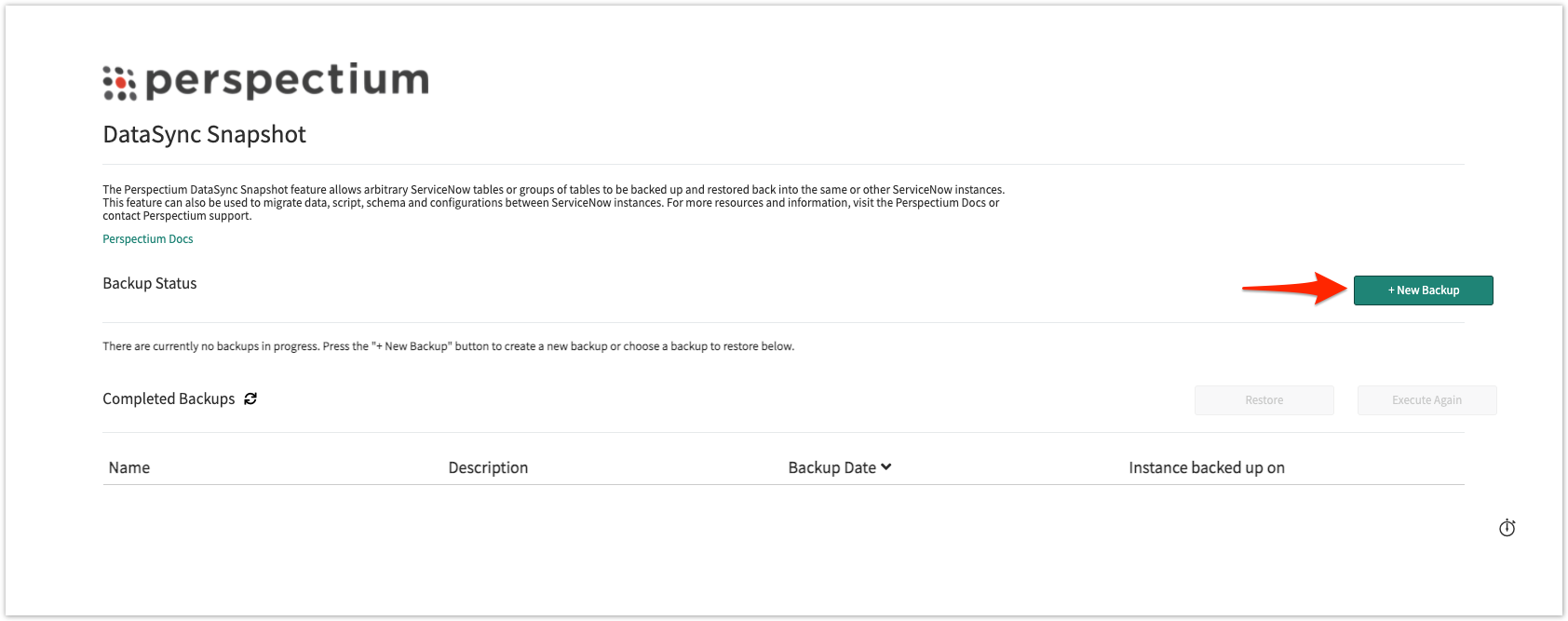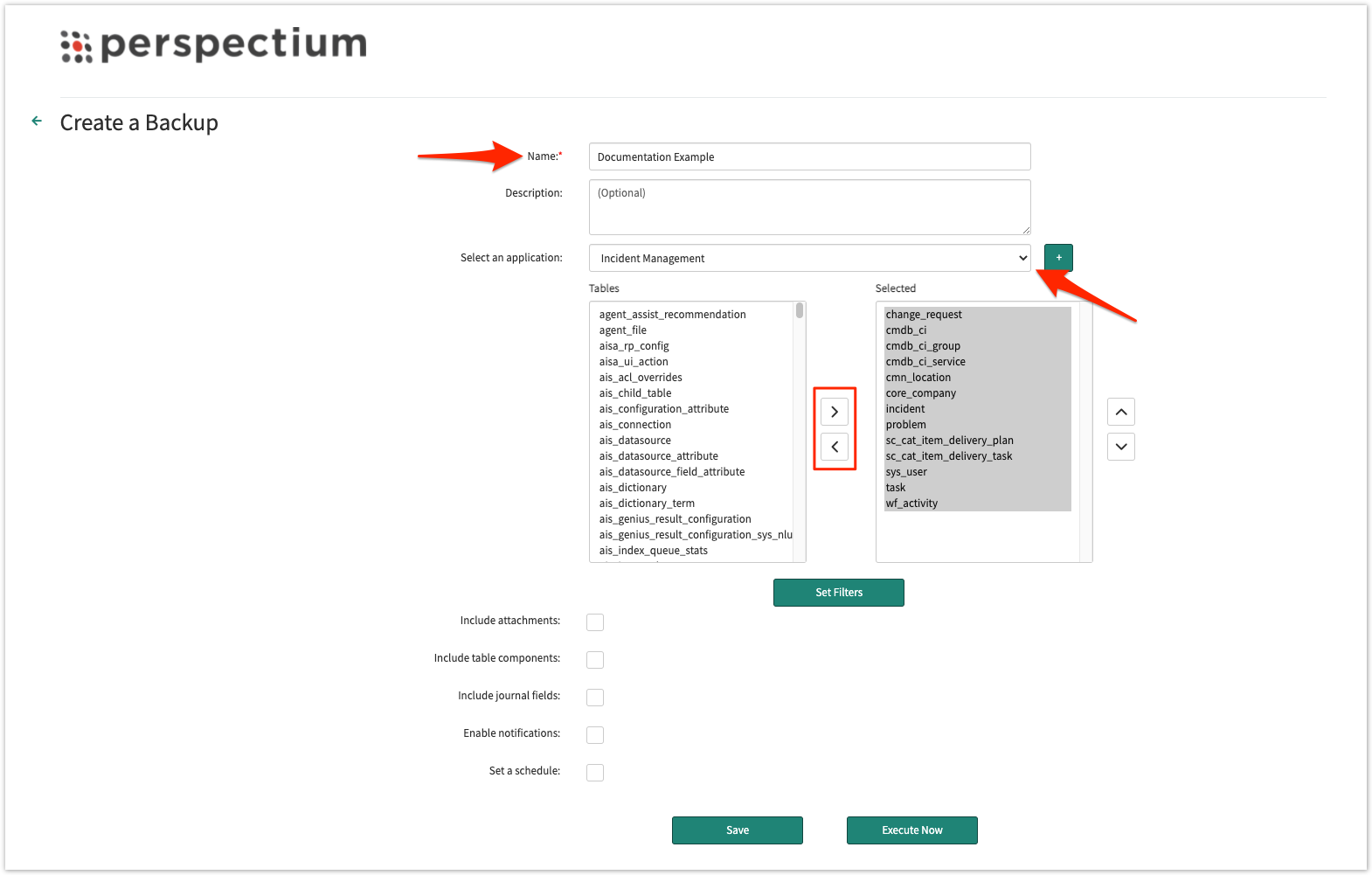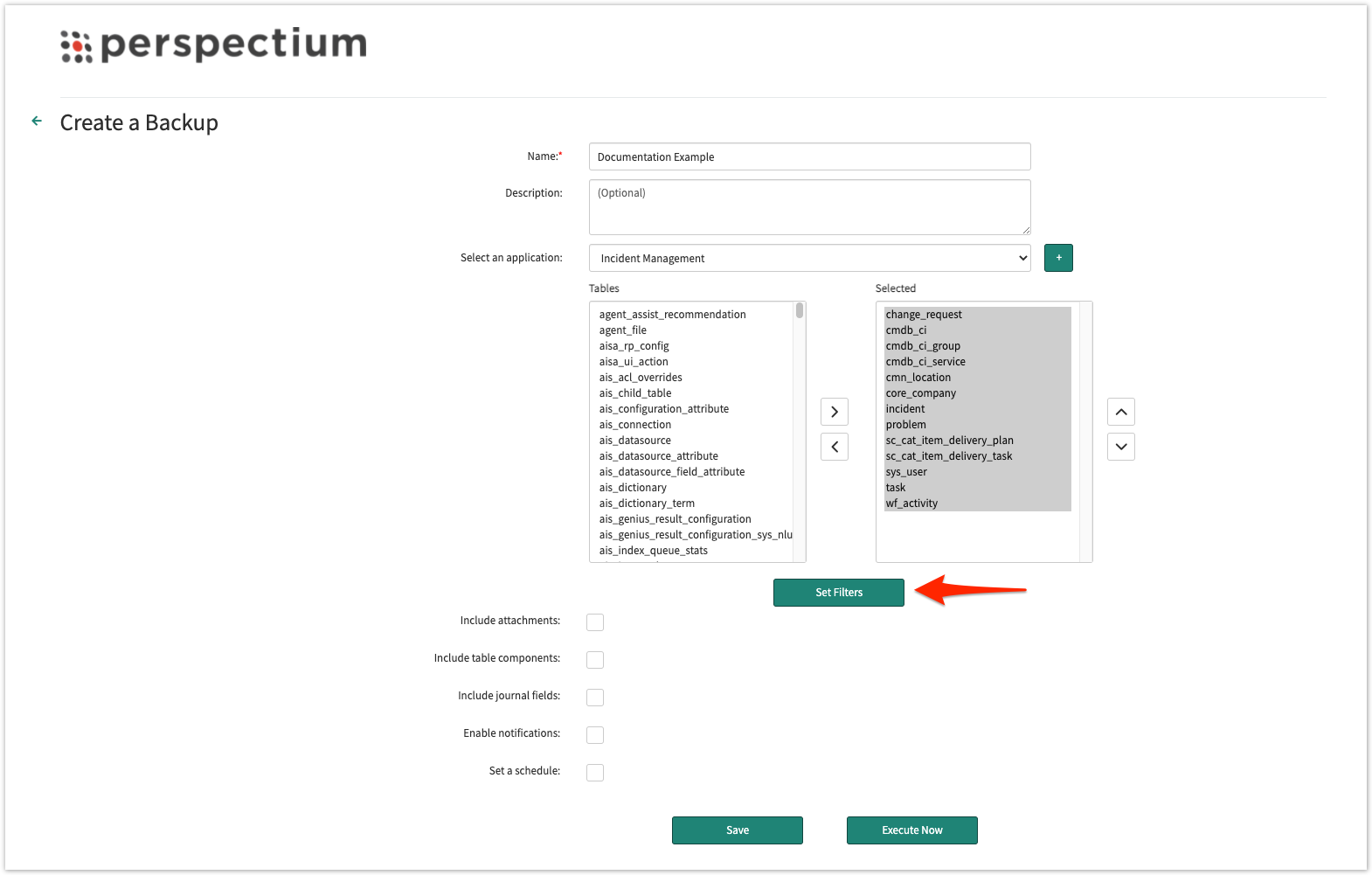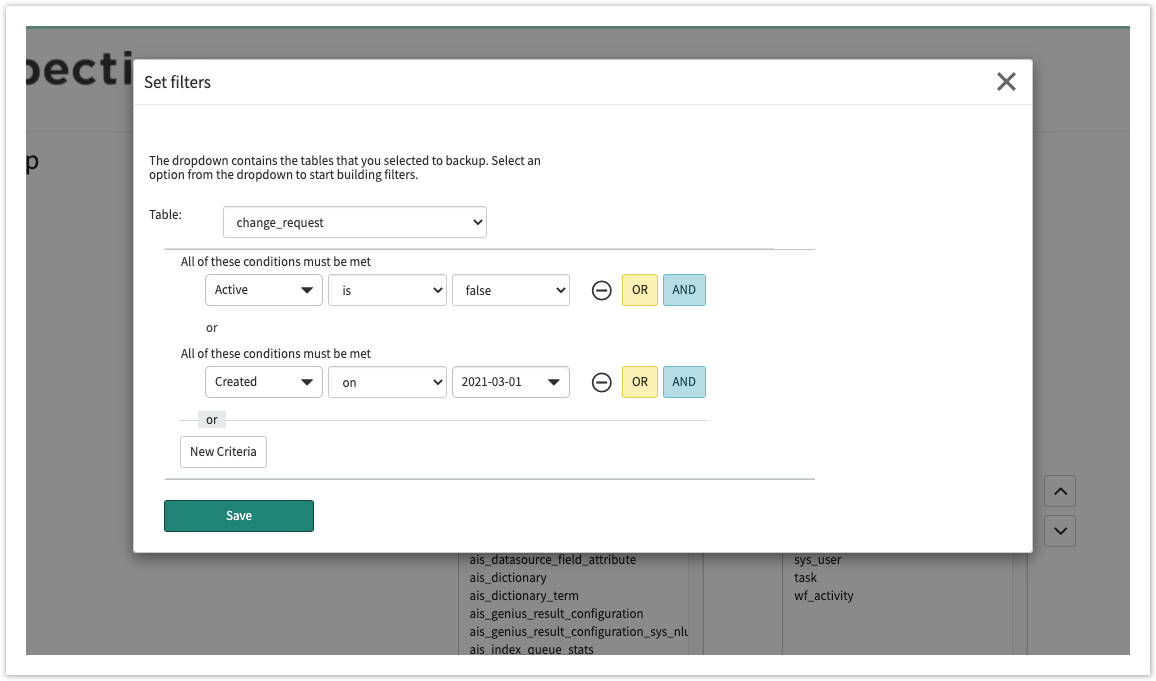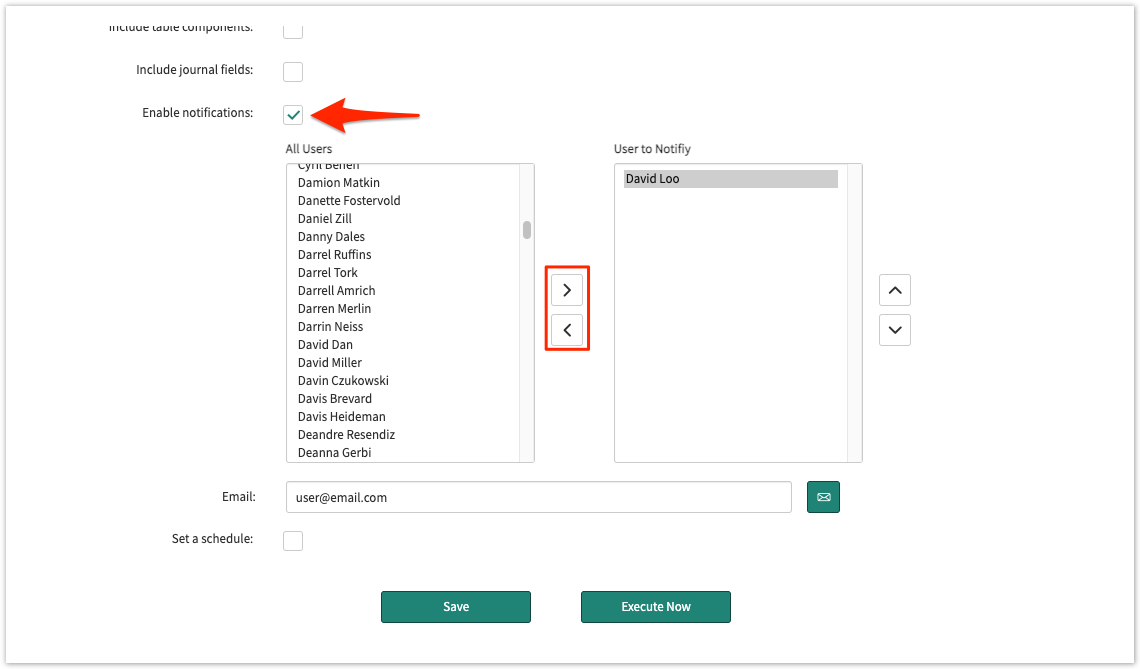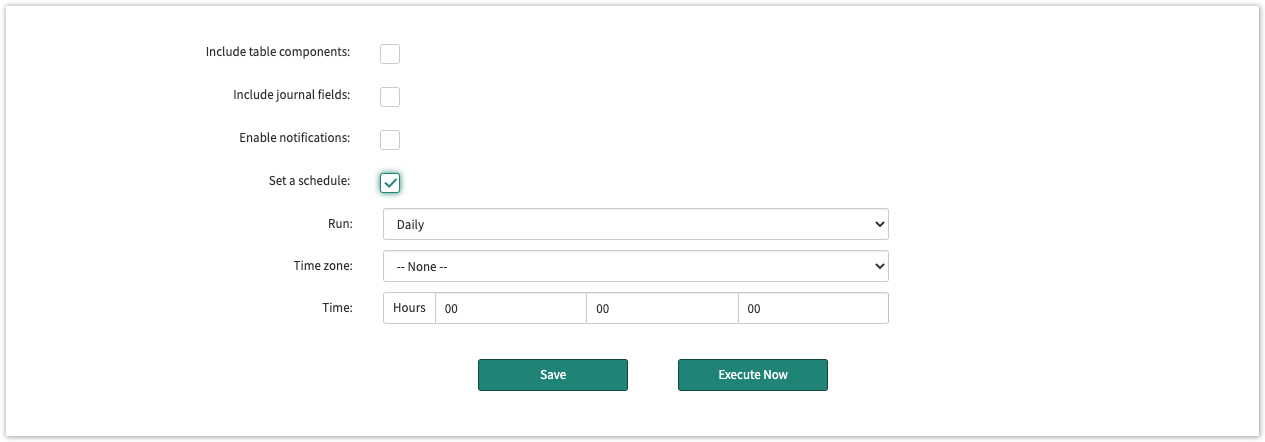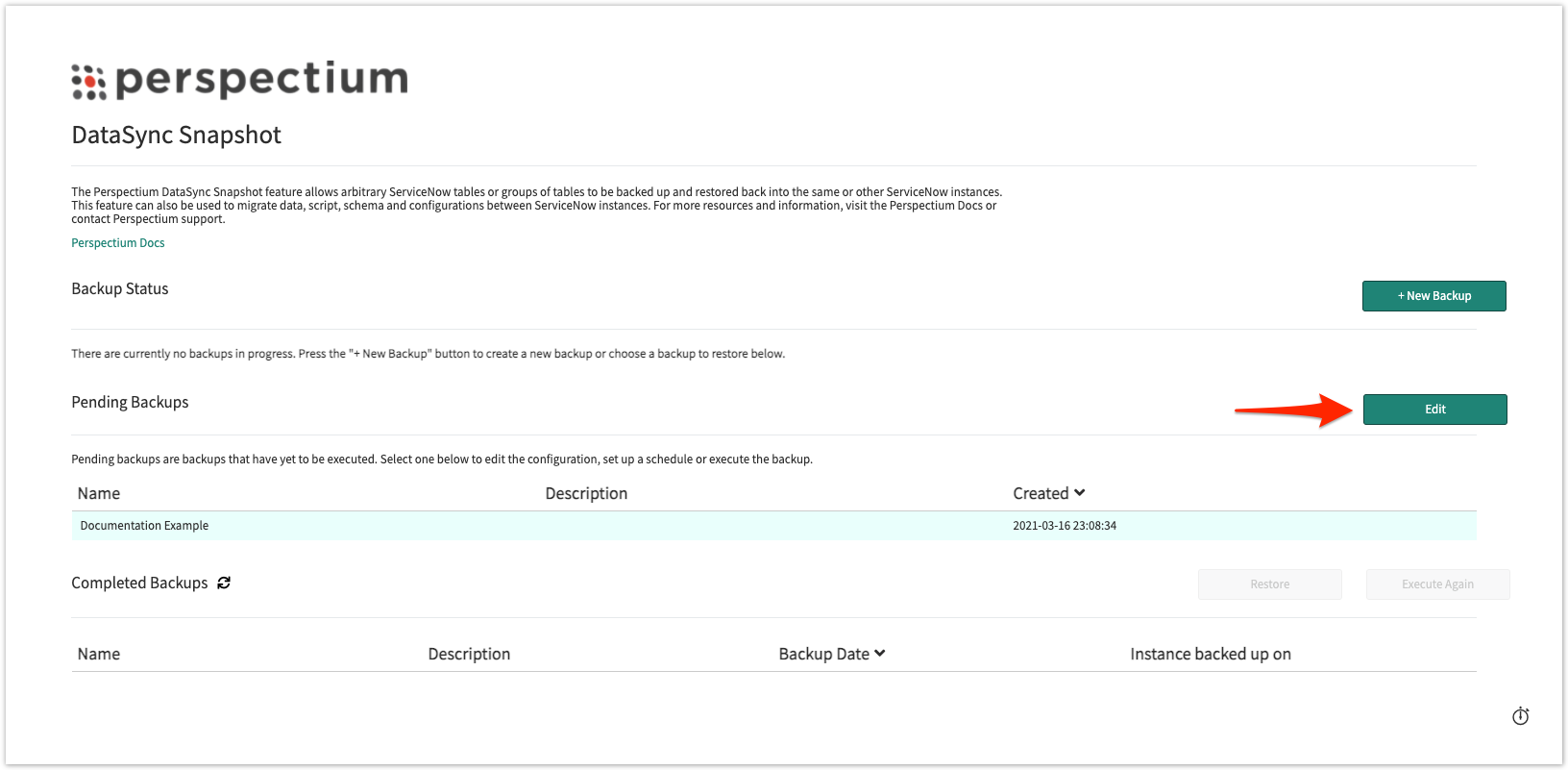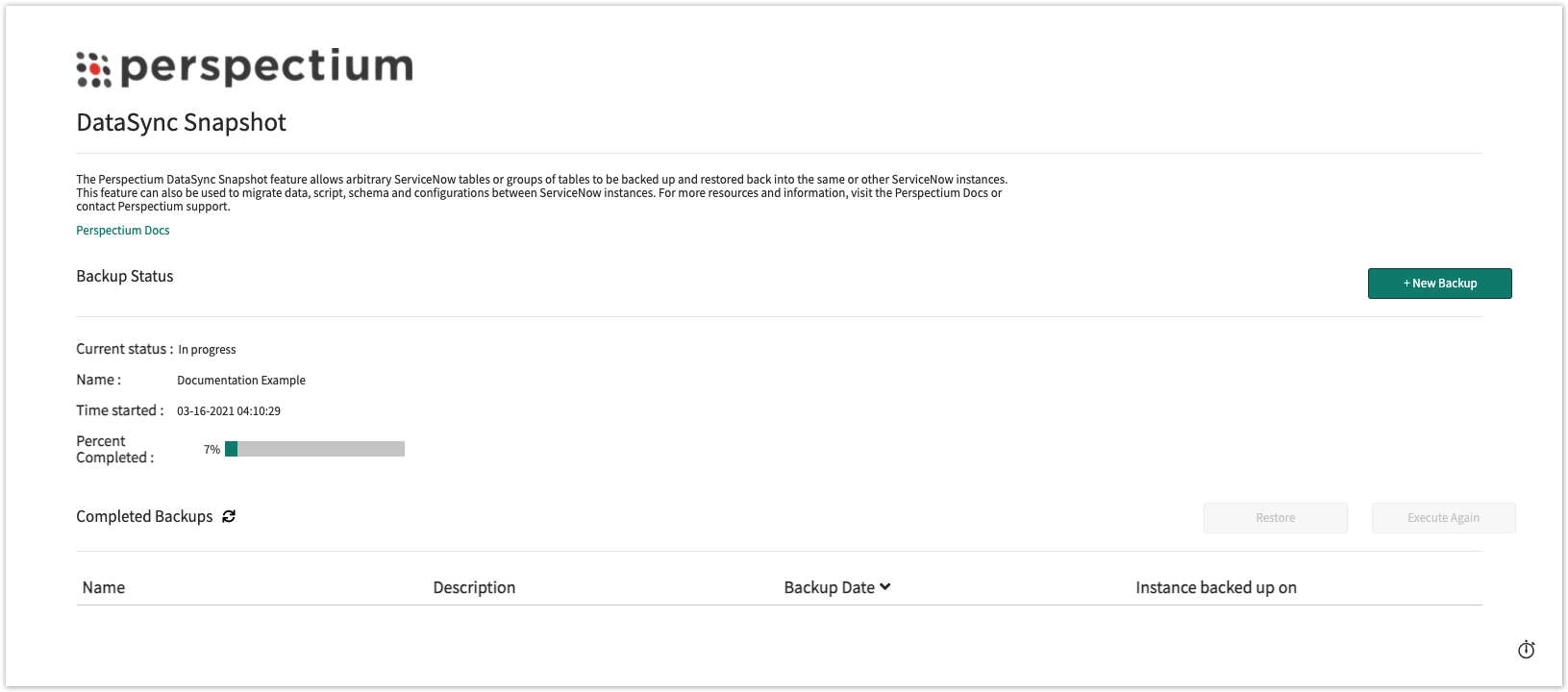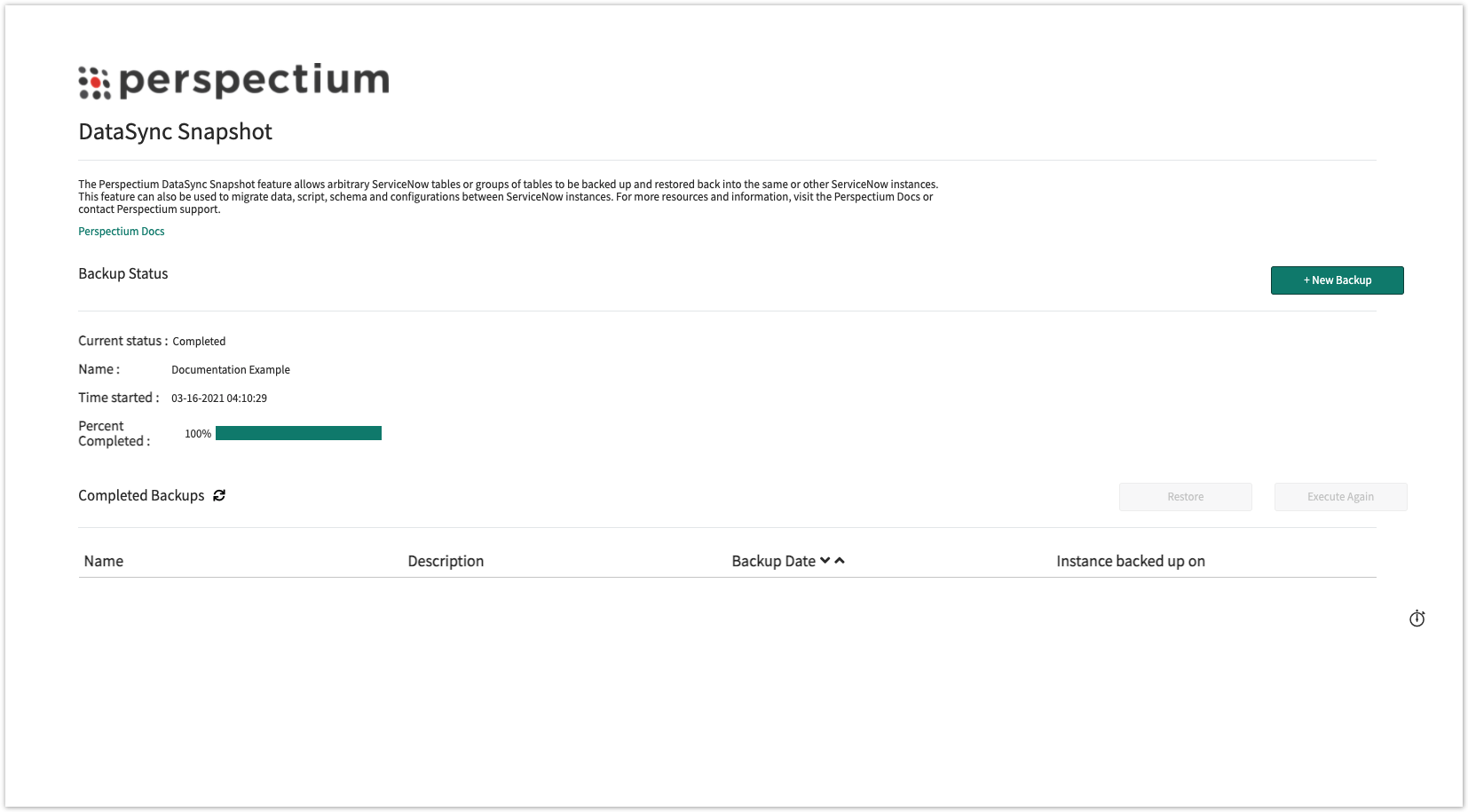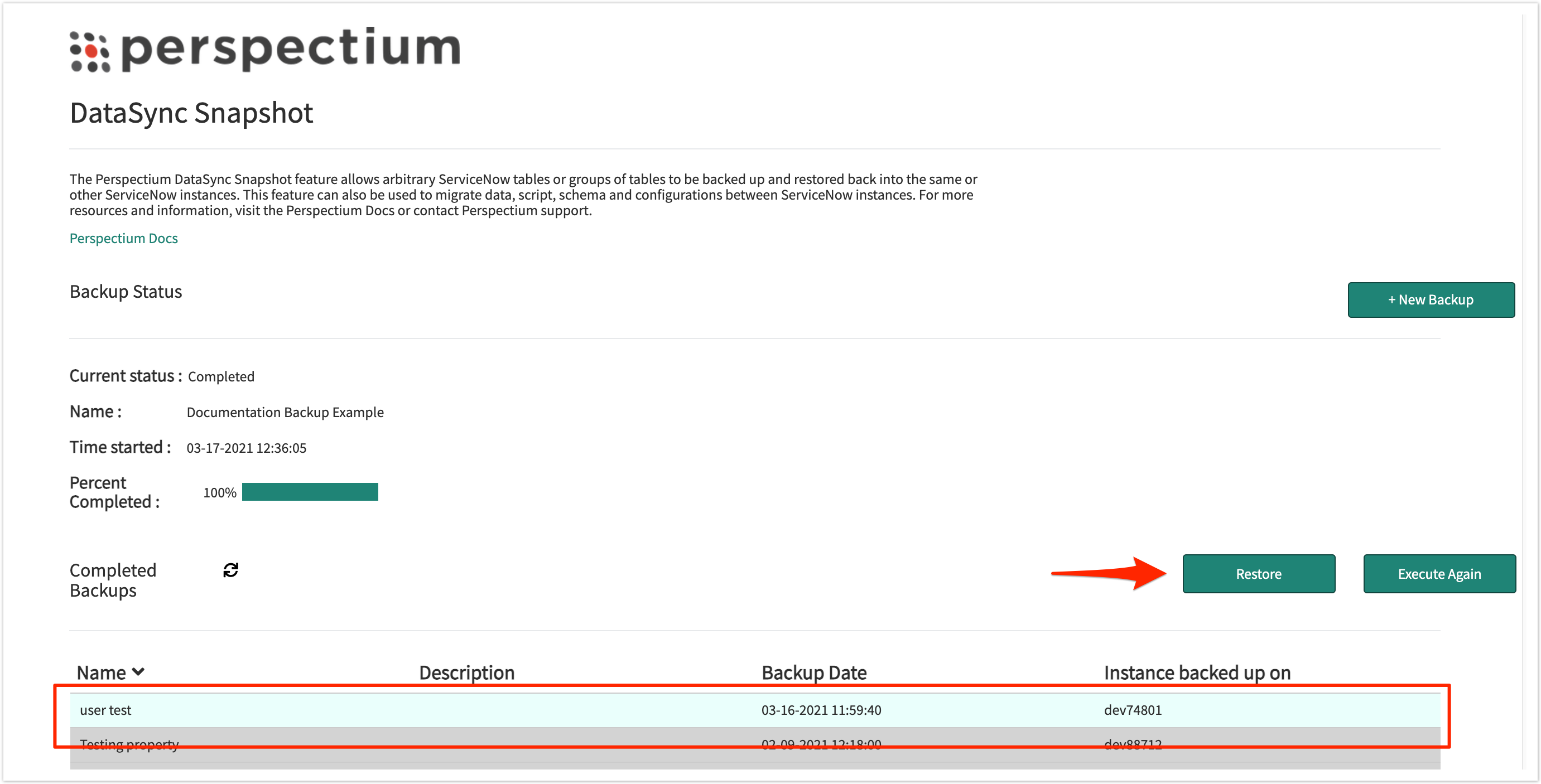DataSync Snapshot reliably, comprehensively backs up ServiceNow objects and data without impacting performance, and all from within the Perspectium DataSync application.
Once you have created and executed a backup, you will have the option to restore the records in the selected table(s) in your ServiceNow instance or another ServiceNow instance.
NOTE: You will need to have MBS 3.0 to properly run backup and restore. For more information, contact Perspectium Support.
Prerequisites
You need the following information from Perspectium Support:
- Perspectium Integration Mesh (MBS) server URL
- Integration Mesh (MBS) vhost
- Integration Mesh (MBS) username
- Integration Mesh (MBS) password
Then, you need to install the Perspectium application into your ServiceNow instance by installing update sets in the following order:
- Perspectium Core update set
- Perspectium Snapshot update set
Follow the link to Get Started with DataSync for ServiceNow.
Initial Setup
Before you begin, you will need set up initial configurations in Perspectium's General Settings:
No valid Data Center license found
Please go to Atlassian Marketplace to purchase or evaluate Refined Toolkit for Confluence Data Center.Please read this document to get more information about the newly released Data Center version.
General Configurations
No valid Data Center license found
Please go to Atlassian Marketplace to purchase or evaluate Refined Toolkit for Confluence Data Center.Please read this document to get more information about the newly released Data Center version.
No valid Data Center license found
Please go to Atlassian Marketplace to purchase or evaluate Refined Toolkit for Confluence Data Center.Please read this document to get more information about the newly released Data Center version.
No valid Data Center license found
Please go to Atlassian Marketplace to purchase or evaluate Refined Toolkit for Confluence Data Center.Please read this document to get more information about the newly released Data Center version.
When to use Snapshot
How to configure Snapshot for different uses are listed below. These listed are just some examples of how you can use Snapshot and if you have any questions about how you can best use it, contact Perspectium Support.
Upgrading a ServiceNow application
Learn how to setup and execute backup to prepare your ServiceNow instance for an upgrade.
Before you upgrade your application, you will need to back up the tables in your ServiceNow instance.
No valid Data Center license found
Please go to Atlassian Marketplace to purchase or evaluate Refined Toolkit for Confluence Data Center.Please read this document to get more information about the newly released Data Center version.
Once the tables are backed up, you can upgrade the application. Let’s say something went wrong or the upgrade removed a core functionality, time to restore that backup!
No valid Data Center license found
Please go to Atlassian Marketplace to purchase or evaluate Refined Toolkit for Confluence Data Center.Please read this document to get more information about the newly released Data Center version.
Upgrading across different instances
Learn how to backup and restore table(s) when upgrading the application across different instances.
NOTE: Before you begin, validate that you have the same Integration Mesh credentials across the different instances.
In cases where you have two instances, i.e. one test environment and one development environment, and you want to upgrade the test environment, you can first execute a backup before doing the upgrade.
No valid Data Center license found
Please go to Atlassian Marketplace to purchase or evaluate Refined Toolkit for Confluence Data Center.Please read this document to get more information about the newly released Data Center version.
Let's say you now you wanted to upgrade the development environment as well. However during the upgrade, you run into issues because of conflicts with other applications on this instance. You can restore the backup from the test environment to the development environment.
No valid Data Center license found
Please go to Atlassian Marketplace to purchase or evaluate Refined Toolkit for Confluence Data Center.Please read this document to get more information about the newly released Data Center version.
Backing up continuously changing environments
For instances where you are continuously making changes to, such as a development environment, you can schedule backups to automatically run on a repeated interval so you can restore at different points in time.
To schedule a backup on a repeated interval, do the following:
No valid Data Center license found
Please go to Atlassian Marketplace to purchase or evaluate Refined Toolkit for Confluence Data Center.Please read this document to get more information about the newly released Data Center version.
Once you experience an issue and you feel the need to restore previous table(s), you can restore one of your previously executed backups.
No valid Data Center license found
Please go to Atlassian Marketplace to purchase or evaluate Refined Toolkit for Confluence Data Center.Please read this document to get more information about the newly released Data Center version.
